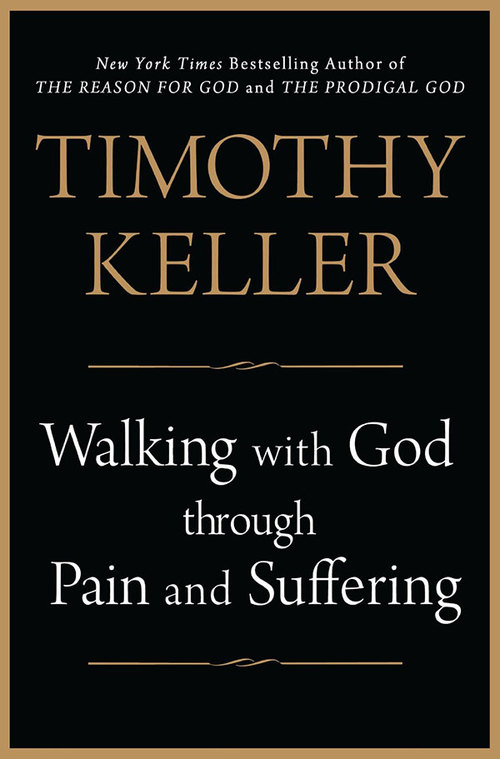 I recently began reading Timothy Keller’s book that deals with pain and suffering, aptly titled Walking with God through Pain and Suffering. Keller, a best-selling author and pastor of Redeemer Presbyterian Church in New York City, has so far–I’m only a fifth of the way through–delivered yet another helpful book on a topic of interest to both believers and non-believers.
I recently began reading Timothy Keller’s book that deals with pain and suffering, aptly titled Walking with God through Pain and Suffering. Keller, a best-selling author and pastor of Redeemer Presbyterian Church in New York City, has so far–I’m only a fifth of the way through–delivered yet another helpful book on a topic of interest to both believers and non-believers.
In the second chapter of the book, titled The Victory of Christianity, Keller shares some thoughts that I found quite compelling. The section of the chapter wherein these ideas are raises has “Residual Christianity and the Problem of Evil” as its sub-title. Consider the following in regards to the ascendancy of the problem of evil as a difficult doctrine:
"It is often noted that the United States became secularized more slowly than Europe and Canada, but secularization has nevertheless moved forward. Despite the Deism of American founders such as Thomas Jefferson, several powerful spiritual awakenings kept American public culture characterized by Christian beliefs. In particular, those included the universality of human sin, that every person has a nature prone to and capable of great evil. This meant that "moral evil"–terrible suffering and pain inflicted by human beings on other human beings–was easy to explain. It was seen as part and parcel of living within the sinful human race. In addition, the doctrine of inherent human sinful ness also explained natural evil. Because we had turned from God, it was understandable that our world would be a dark and broken place, since it was under the judgment of a just God. And so earthquakes as well as invasions were occasions for public calls for widespread and repentance." (57)
Essentially, Keller suggests that the problem of evil wasn’t a problem until recently, or at least, wasn’t as big of a problem as it has become. The reason? Christians in the past, which lived in Western countries at a much higher proportion than they do now, held certain beliefs which “dealt” with the problem of evil in a more satisfactory manner.
Keller continues, noting the transformation of our beliefs, writing:
And so we have come to our present day. All of Western societies live within the secular frame, and even though many people still profess fairly traditional believes in God, most are affected by this frame. We see ourselves as able to control our own destiny, able to discern for ourselves what is right and wrong, and we see God is obligated to arrange things for our benefit, especially if we live a good enough life according to our own chosen standards. (57) Keller is clear on his opinion of the effects of this doctrinal metamorphosis, bluntly stating, “this secularized belief in God, or this residue of Christianity, may be the worst possible preexisting condition in which to encounter suffering” (58).
It seems we are ill-prepared and ill-equipped for the very things which cause us so much intellectual and emotional distress.
Keller believes, however, that Christianity actually does possess the assets needed for walking through pain and suffering and these assets “reside in robust, distinctive Christian beliefs” (58). It is biblically rich, thick, and vigorous doctrines which furnish us for the fight of faith that invariably involves suffering. Keller notes four doctrines which particularly impact our ability to manage suffering: 1) the belief in a “personal, wise, infinite, and therefore inscrutable God who controls the affairs of the world” (58); 2) the tenet that “in Jesus Christ, God came to earth and suffered with and for us sacrificially” proving God is for us (58); the assurance of salvation for those who hold to “Christ’s work of salvation”(58) through faith; and 4) the belief that all true believers will experience bodily resurrection from the dead (58).
These great truths, according to Keller, prepare us and equip us for experiencing suffering and pain. Though I don’t claim to have experienced great suffering, I believe this to be true and have seen this very thing played out in the lives of friends. Keller concludes this section of his book with emphatically declaring, “When suffering, believing in God thinly or in the abstract is worse than not believing in God at all” (60).
So then, what about you? Do you believe in God thinly? Do you believe in a thin God? Do your doctrinal beliefs amount to nothing more than a residue of Christianity? If so, your journey through pain and suffering may be one in which you are less prepared than those who don’t believe in God at all.



Comment
On Monday, September 26, 2016, Barbara Postma said:
Leave a Comment